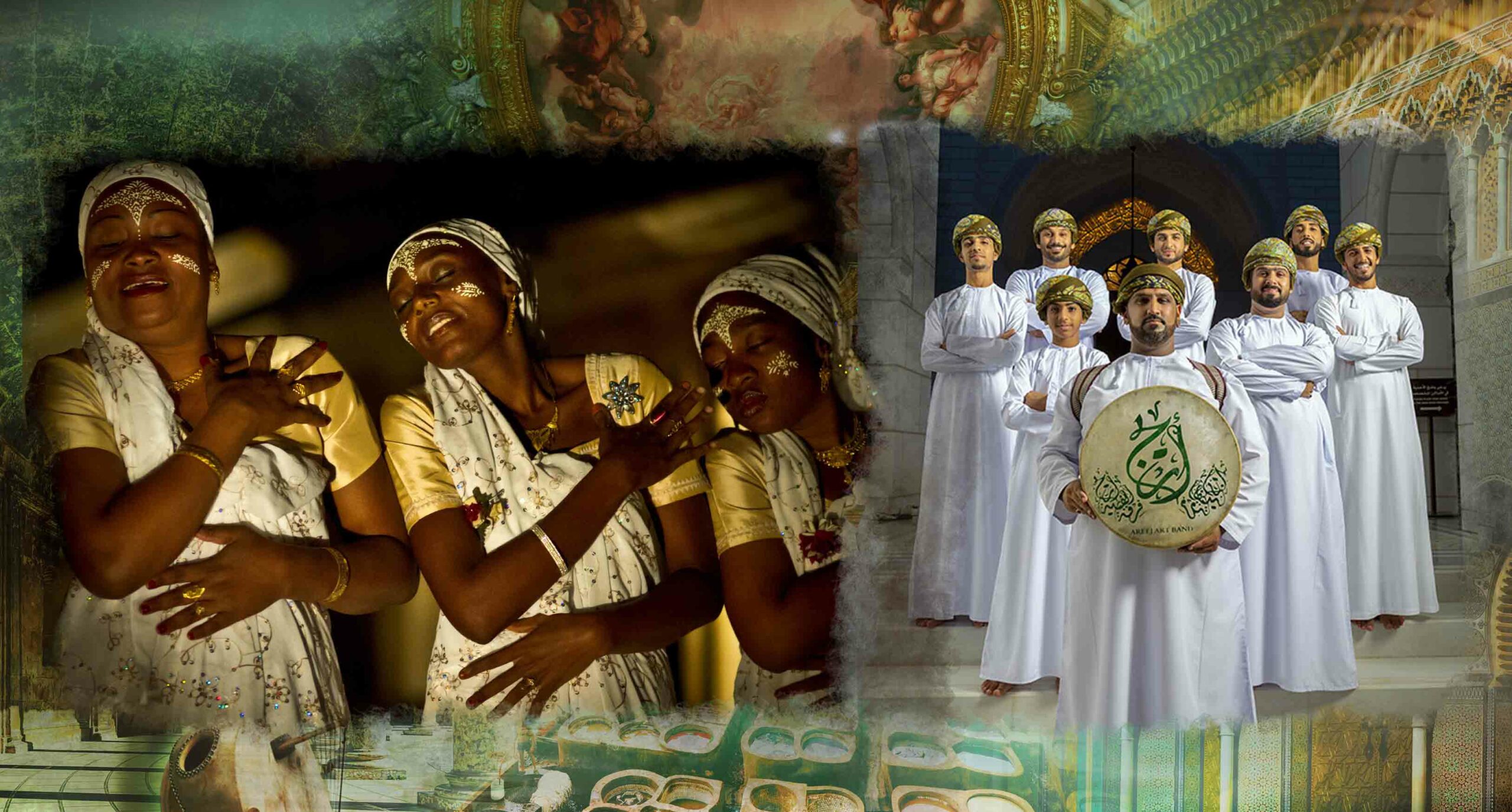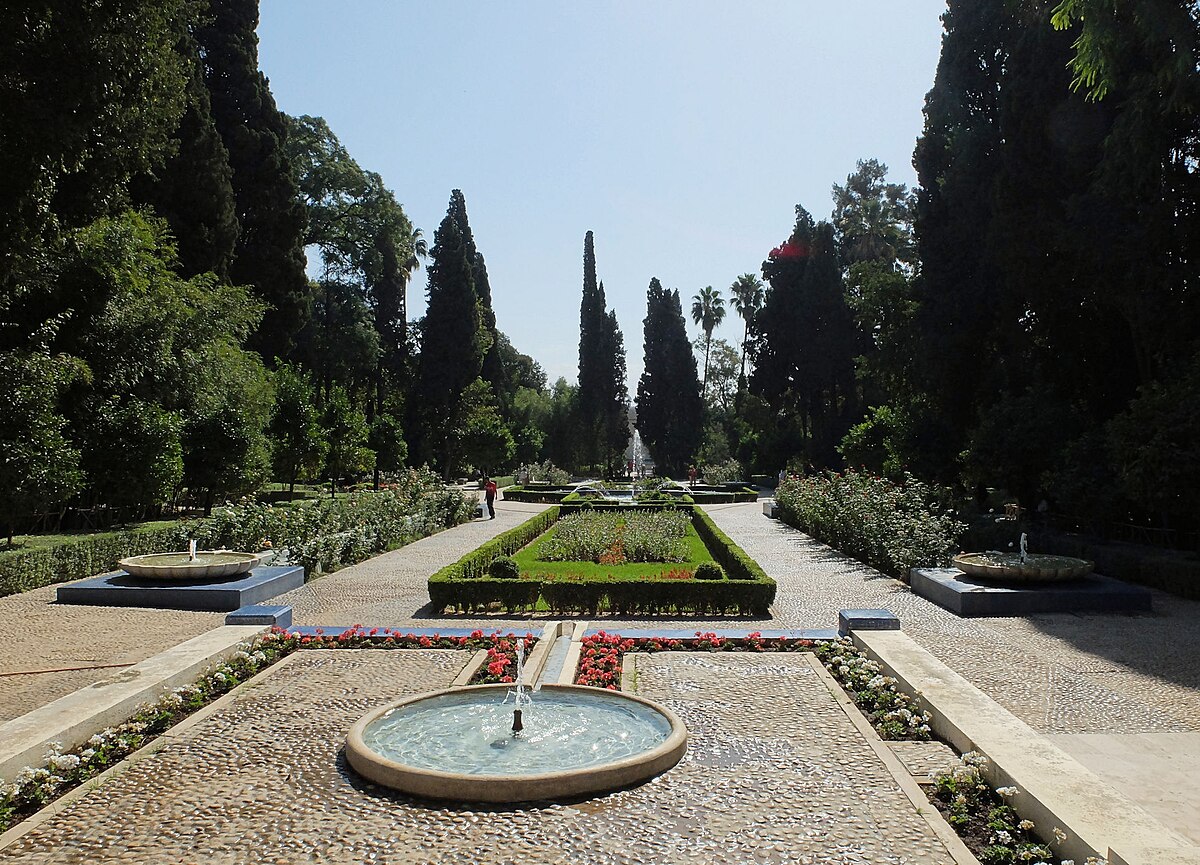
Sufi Rituals of the Indian Ocean, The Deba of Mayotte and the Sufi Ensemble Al Areej from the Sultanate of Oman
The Deba, a Sufi ritual for the women of Mayotte – Comoros Islands
“The Deba songs and dances, derived from dhikr, commemorate—like the mawlid—the birth of the Prophet. When the deba becomes a praise ritual, the dancers come to welcome pilgrims returning from Mecca. Synonymous with qasîda in the Comoros, the deba is equivalent to a ‘mystical sung poem’ and originates from the patronymic name of a 15th-century figure: Abdurahmân ibn ‘Alî al-Dayba or al-Dayba’î. A historian and writer, he is best known in the Indian Ocean region as a compiler of poems and author of mawlids, which became the major sources of this tradition.
A rite of atonement, a gift to God, or simply a festive accompaniment—such as during weddings—the Deba, a true archetype of a matriarchal society, is practiced in every village and often becomes the subject of competitions and jousts. While the Deba is part of Sufi spiritual worship, as an integral part of daily life in Mayotte, it provides an opportunity for women to gather. The joy of being together, of vibrating in harmony, is reflected in their dances.
In a swaying movement of the neck, a synchronized nod of the head, curves traced by the hands, the many young women, dressed in colorful fabrics and golden jewelry, evoke the movement of the ocean waves, their calm and cyclical flow. The bodies thus sway slowly, supported by the percussion, while their hands rise towards the sky, inviting an eternal vastness.”
Victor Randrianary – CNRS researcher
Ensemble Al Areej – Sufi Chants from the Sultanate of Oman”
Creation “The Voice of the Ancestors
“The art of singing is the foam of the sea. Graceful movements emerge from a pearl that comes from the depths of the ocean.”
Jalal al-Din Rumi
The Sultanate of Oman remains rooted in a great Arab tradition that spans both Persia and the Indian Ocean and Zanzibar. In Sumerian times, Oman was known as Magan. Its incense was sold in Mesopotamia, Egypt, Persia, India, and Dilmun, present-day Bahrain. Oman was Islamized during the lifetime of the Prophet Muhammad, in the 7th century. In the following century, after the schism between Sunnis and Shiites, Oman was one of the few regions to adopt a different path, Kharijism, and soon became the principal region of Ibadi Islam, the pacifist branch of Kharijism.
During the Yarubid dynasty, the Omanis seized the main Swahili ports on the East African coast: Mombasa, Kilwa, Zanzibar, and Pemba, which likely explains the significant similarity between the Sufi rituals of Zanzibar and those of Oman, particularly in gesture and the practice of mawlid—celebrating the Prophet’s birth. In the Omani ritual, there is also the influence of the songs and movements of the pearl fishermen.
Crédit photo Deba David Horsman

La 28ème édition de la music sacré aura lieu du vendredi 16 au 24 mai 2025 à Fes sous le thème " RENAISSANCES " .
Placée sous le Haut Patronage de Sa Majesté leRoi Mohammed VI, que Dieu l'assiste.
contact
Technical support and ticketing: +212 (0) 637 660 013
Vous avez des question?
besoin d'informations supplémentaire pour acheter ou sur le programme ? Notre équipe est à votre disposition pour répondre à toutes vos question.

